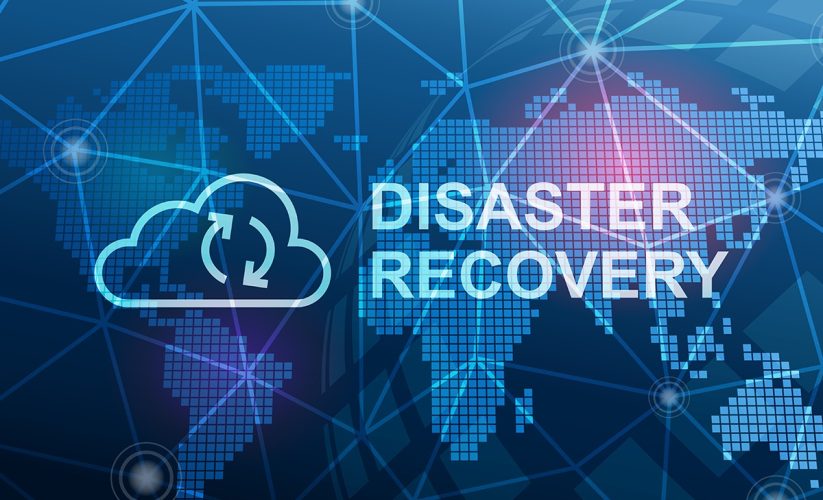
Comparing Public vs. Private Cloud Backup Options
In today’s digital landscape, data is an invaluable asset for organizations of all sizes. With the increasing risk of data loss from cyberattacks, hardware failures, and natural disasters, businesses must implement effective backup strategies to ensure data integrity and continuity. One of the most critical decisions organizations face is choosing between public and private cloud backup options. This article will explore the key differences between these two approaches, focusing on offsite data backup storage and disaster recovery, to help you determine the best fit for your business.
Understanding Cloud Backup
Before diving into the comparison, it’s essential to understand what cloud backup entails. Cloud backup refers to storing data on remote servers accessed via the internet. This offers businesses a way to secure their data offsite, providing protection against local disasters while enabling efficient data recovery.
Types of Cloud Backup
- Public Cloud Backup: In this model, data is stored on shared infrastructure managed by third-party cloud service providers. Examples include services like Amazon Web Services (AWS), Microsoft Azure, and Google Cloud.
- Private Cloud Backup: This involves dedicated infrastructure exclusively used by a single organization. Private clouds can be hosted on-premises or by third-party providers, giving businesses more control over their data.
Advantages of Public Cloud Backup
1. Cost-Effectiveness
Public cloud backup solutions are typically more affordable than private cloud options. Since resources are shared among multiple users, businesses benefit from reduced costs associated with infrastructure and maintenance.
2. Scalability
Public cloud providers offer scalable solutions that allow businesses to easily adjust their storage needs based on current requirements. This flexibility is particularly beneficial for organizations experiencing rapid growth or fluctuating data storage needs.
3. Ease of Use
Public cloud services often come with user-friendly interfaces and straightforward setup processes. This simplicity allows businesses to quickly implement backup solutions without extensive IT resources.
4. Advanced Features
Many public cloud providers offer a range of advanced features, including automated backups, redundancy, and robust security measures. These features enhance data protection and streamline backup processes.
Disadvantages of Public Cloud Backup
1. Security Concerns
While public cloud providers implement strong security measures, businesses may still face concerns regarding data privacy. Storing data on shared infrastructure can expose organizations to potential vulnerabilities.
2. Compliance Challenges
Organizations in regulated industries may find it challenging to comply with specific regulations when using public cloud services. Ensuring that data is stored and managed in accordance with industry standards can be more complicated in a public cloud environment.
3. Limited Control
Public cloud users typically have less control over their data and infrastructure than private cloud users. This can be a significant drawback for organizations that require strict governance and oversight of their data.
Advantages of Private Cloud Backup
1. Enhanced Security
Private cloud backup solutions offer higher levels of security because the infrastructure is dedicated to a single organization. This reduces the risk of unauthorized access and data breaches, making it an ideal choice for businesses handling sensitive information.
2. Greater Control
Organizations using private clouds have complete control over their data management policies, security protocols, and compliance measures. This level of governance is crucial for businesses concerned about regulatory compliance.
3. Customization
Private cloud solutions can be tailored to meet the specific needs of an organization. Businesses can configure their infrastructure to support unique workflows, applications, and data storage requirements, ensuring optimal performance.
4. Improved Performance
Since private cloud environments are not shared with other users, businesses can often achieve better performance and faster data access. This is especially beneficial for organizations with high data processing demands.
Disadvantages of Private Cloud Backup
1. Higher Costs
Private cloud solutions typically come with higher upfront and ongoing costs. Organizations must invest in dedicated infrastructure, maintenance, and potential IT staffing, which can strain budgets, especially for small businesses.
2. Complexity
Setting up and managing a private cloud can be complex and resource-intensive. Organizations require skilled IT personnel to oversee the infrastructure, which may not be feasible for smaller businesses.
3. Scalability Limitations
While private clouds offer flexibility, scaling up can be more challenging compared to public cloud solutions. Organizations may need to invest in additional hardware and infrastructure to accommodate growing data storage needs.
Offsite Data Backup Storage and Disaster Recovery
Regardless of whether you choose public or private cloud backup solutions, offsite data backup storage and disaster recovery are critical components of any data management strategy. Here’s how both options contribute to effective disaster recovery:
Public Cloud Backup for Disaster Recovery
- Rapid Recovery: Public cloud solutions often provide quick access to backed-up data, enabling organizations to restore operations swiftly after a disaster.
- Geographically Redundant Storage: Many public cloud providers have multiple data centers across various locations, ensuring that data is safe from localized disasters.
Private Cloud Backup for Disaster Recovery
- Tailored Recovery Plans: Organizations can develop customized disaster recovery plans that align with their specific needs and compliance requirements.
- Dedicated Resources: With a private cloud, businesses have dedicated resources for recovery efforts, which can enhance performance during critical recovery periods.
Conclusion
Choosing between public and private cloud backup options is a pivotal decision for organizations looking to secure their data through offsite data backup storage and disaster recovery. Public cloud solutions offer cost-effectiveness, scalability, and ease of use, making them suitable for many businesses. However, private cloud solutions provide enhanced security, greater control, and customization, which may be essential for organizations handling sensitive data or subject to strict regulatory requirements.
Ultimately, the choice between public and private cloud backup will depend on your organization’s specific needs, budget, and data management priorities. By carefully evaluating the advantages and disadvantages of each option, businesses can make informed decisions that align with their operational goals.
To learn more about how SequelNet can assist your organization with effective cloud backup strategies, visit www.sequelnet.com today.





